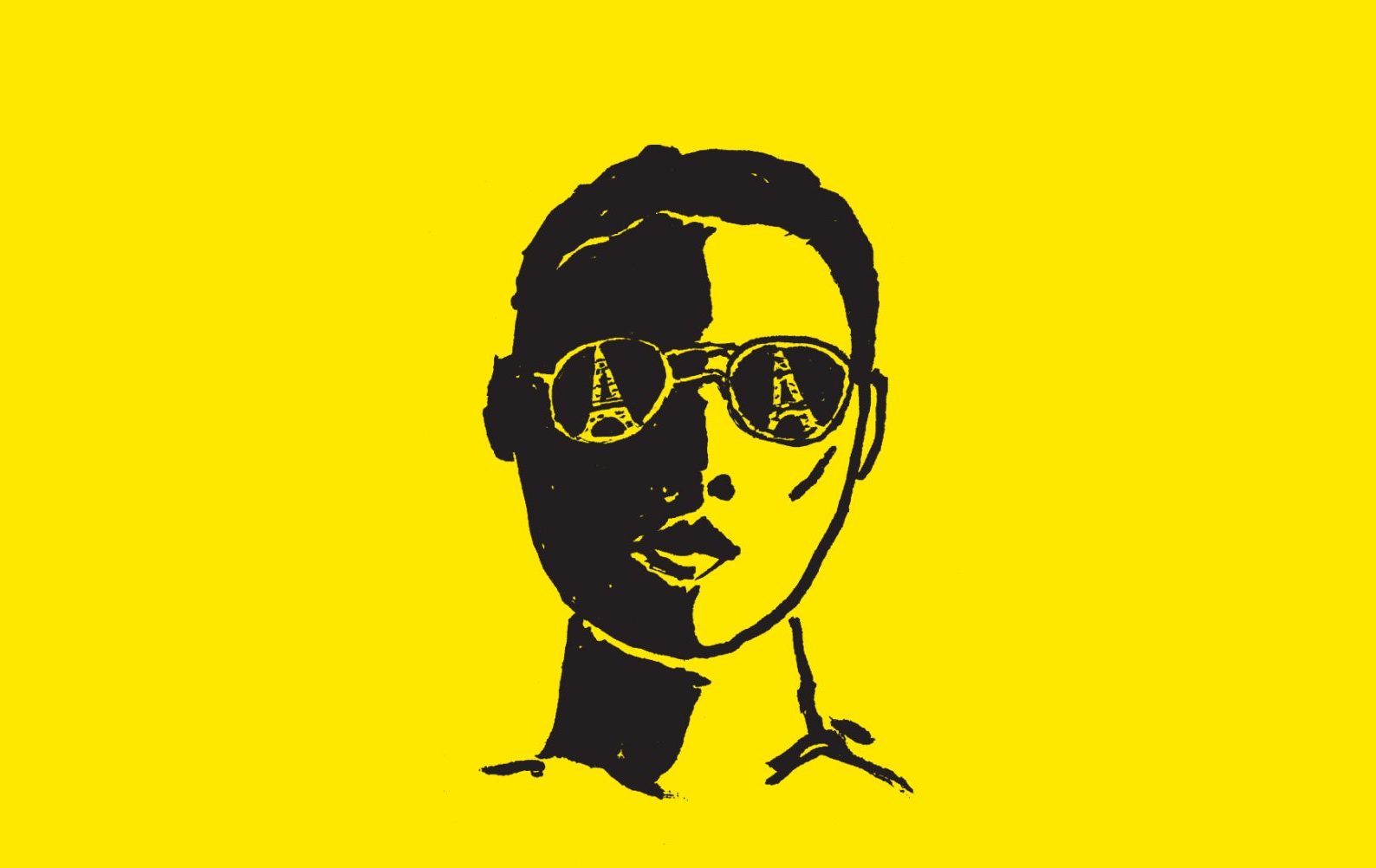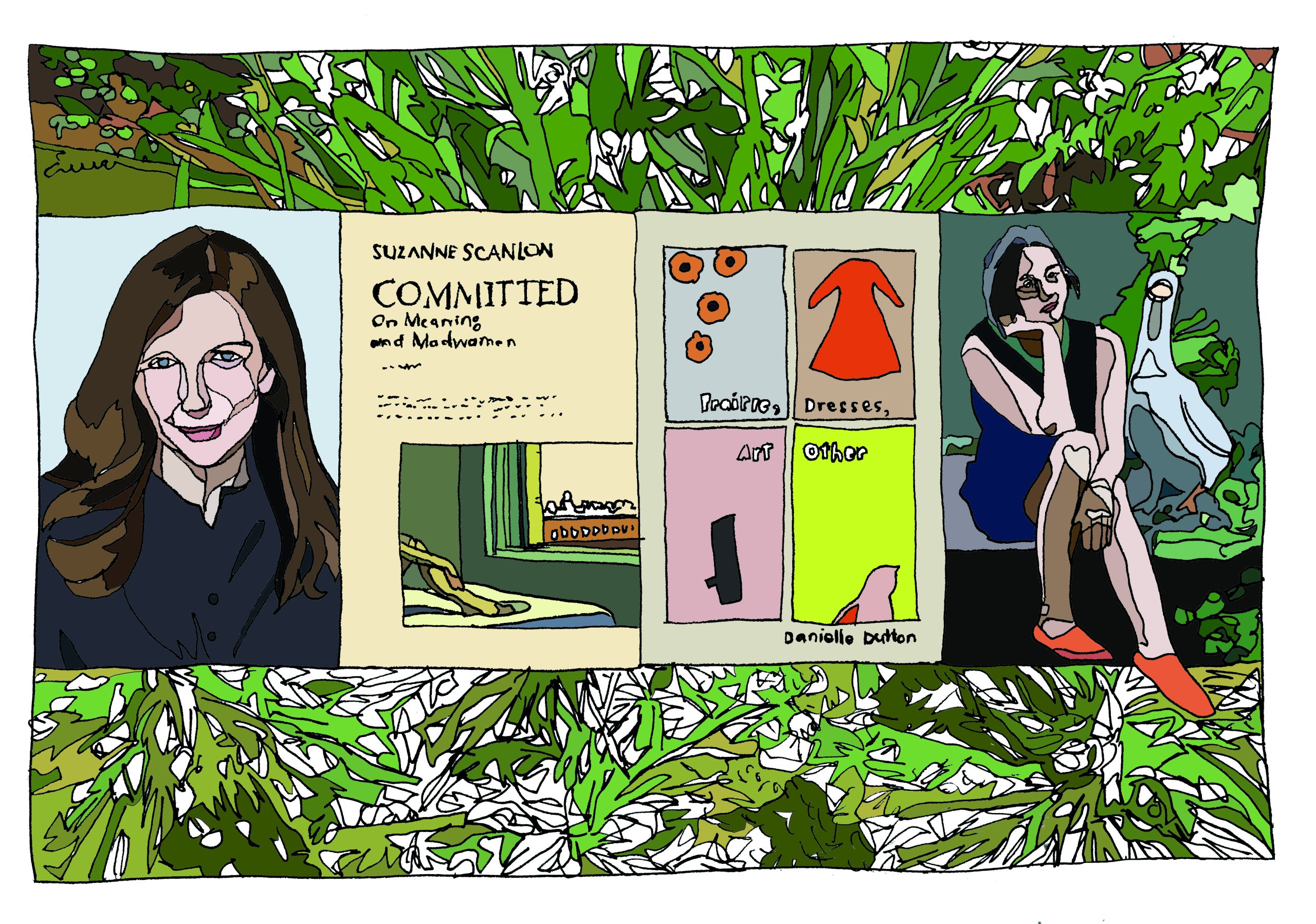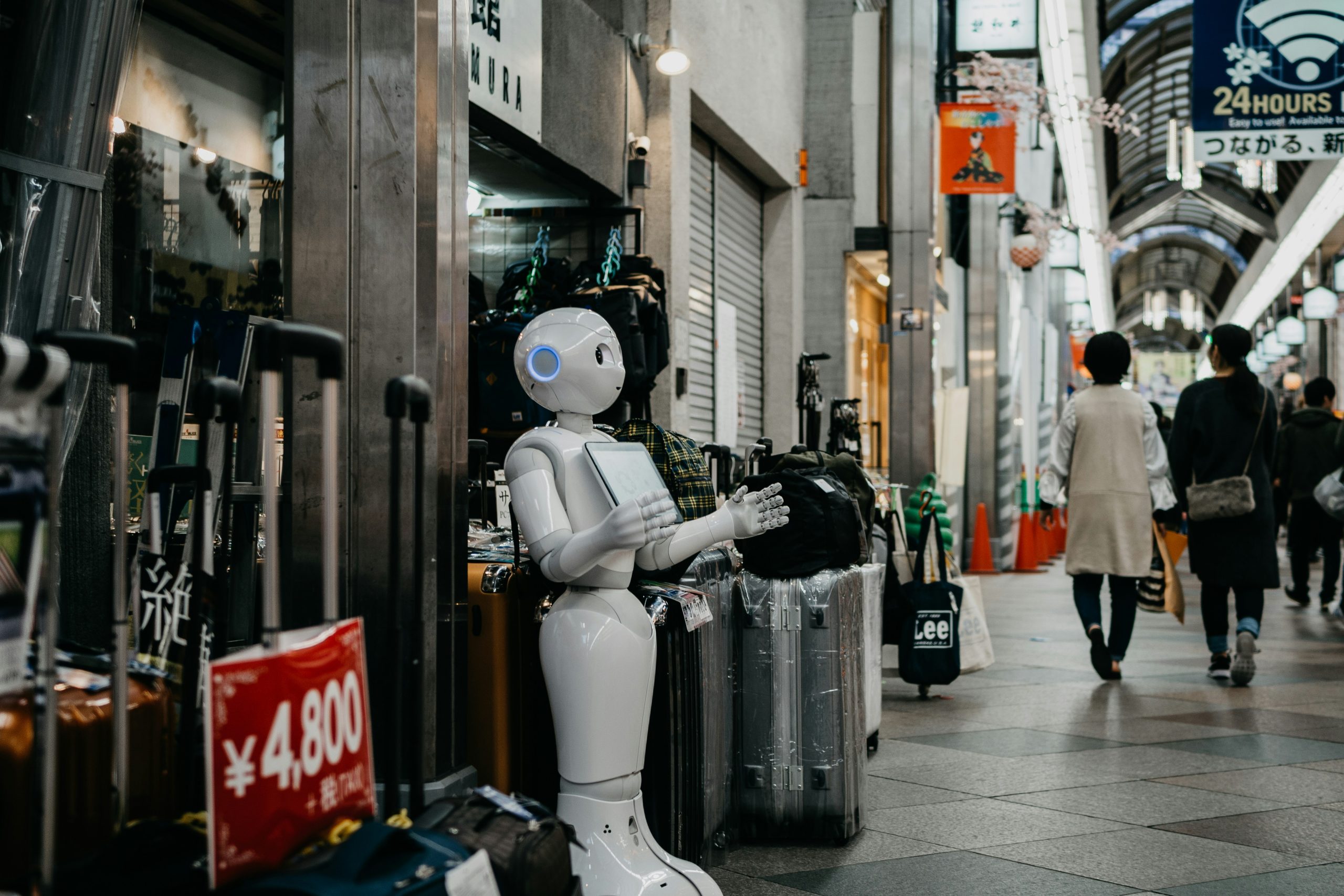Interviews
Viet Thanh Nguyen’s “The Committed” Is a Spy Thriller Where the Real Enemy Is Colonialism
The author on confronting the long shadow of colonialism, imperialism, and anti-Asian violence

The promise and problems of the protagonist of Viet Thanh Nguyen’s two novels—2015’s Pulitzer Prize-winning The Sympathizer and 2021’s sequel, The Committed—spring from his two faces. He is both a South Vietnamese communist spy and an American CIA operative, a nostalgic Vietnamese and a lover of Western culture, a loyal friend and a liar.
After encountering and enacting violence in Vietnam and the United States in The Sympathizer as a dual agent, the protagonist gets a fresh start as a refugee in France, where he tells authorities his name is Vo Danh—or vô danh, “anonymous” in Vietnamese. It is a joke on gullible immigration authorities as well as a commentary on what it means to move through France as a person of Vietnamese descent, anonymized by a colonially inflected gaze. A family-less name is also appropriate for the unacknowledged child of a French priest; in Paris, the protagonist grapples with the memory of his missing father.
The protagonist’s “two minds” allow him to weigh theories of communism and revolution even while engaged in the rather bloody work of capitalism in his newly adopted role as a gangster, delivering drugs for a Vietnamese mafia that battles an Algerian one. The Vietnamese mafia’s goal is to prime privileged and empowered whites for blackmail—including a pretentious politician named BFD who Nguyen says was modeled, in part, on Dominique Strauss-Kahn, or DSK.
It turns out the protagonist’s tendency toward the dialectic is shared by his creator. Over Zoom, Nguyen gave a two-pronged take on subjects ranging from Frantz Fanon, whose theories fuel much of the novel, to the current uptick in violence against Asian Americans, a side effect of coronavirus discourse that continues a Western tradition of othering people of Asian descent.
April Yee: Reading The Committed, I got a picture of France as a place full of armchair liberals and microaggressions. Obviously it’s France in the ’80s, but reading The Committed didn’t make me immediately want to go to Paris. Why is this the place you’d like to be right now in real life?
Viet Thanh Nguyen: In writing The Committed, I wanted to set it in Paris because I wanted my narrator to confront French colonialism. What it means to confront French colonialism—for him and for me—is to acknowledge both the horrors and the atrocities of what the French did, but also to acknowledge the fact that we’ve been mentally colonized, many of us by the French, and seduced by French culture. The French have exported all kinds of romantic and nostalgic images, both of France itself but also French colonies.
Now all that being said, I still enjoy being in France. It’s still for me an interesting and compelling place to be, even with its difficulties. In the 15 months or so total that I’ve spent there, I’ve been called more racial epithets to my face than I’ve ever been in the United States. That’s interesting. I don’t think that the French are perfect. I just think they’re people, which means we acknowledge both what is great and what is terrible about them, just as I can about the United States.
AY: Is that a relief that it’s to your face? In the U.S., we walk around and we think that everyone else has this monologue inside their head that we’re not hearing, that the epithets are there but unheard. What does it mean for you to hear those epithets?
VTN: Maybe it is kind of refreshing to be called chinois by both Black and white people in France. Because I think you’re right—especially during the Trump era—about the internal monologue. You bring up this idea that the people you encounter may actually be secretly thinking these things that Trump and his supporters are saying out loud. Maybe it’s liberating for some people who want to hear those things said or want to be able to say those things. But for me, when I would encounter white people, I’d be like, Are you one of the 50 percent that supports what Trump is doing?
AY: It’s interesting to follow now that this unheard monologue is manifesting in a physical way that is suddenly apparent to people outside of the Asian American community. What is the route out for Asian Americans? How do Asian Americans maintain hope?
VTN: There is a sense, obviously, of pain and anger at what’s being done to Asian Americans and a lot of confusion about how to respond—but also an awareness that this is repetitive, that this is not new. If we go back a couple of decades, a century or more, we’ve seen this before. It’s affirmative to see that the Asian American mobilization on this issue has been pretty strong, even if the national response has been slow.
We’re trying to articulate a complex analysis of this anti-Asian violence in a country that wants to reduce the complexities of race.
But we’re still caught somewhat flat-footed, because we’re trying to articulate a complex analysis of this anti-Asian violence in a country that wants to reduce the complexities of race. People want to reduce this violence to the question of perpetrator and victim. Of course, if you have a historical understanding of race and violence in this country, it’s never just about the perpetrator and the victim. It’s always about the system that puts these perpetrators and victims right next to each other so they can conduct or be the victims of this violence. I’m talking about this question of Black perpetrators and Asian victims. If you go back to the Los Angeles riots, that narrative of Blacks and Koreans had already been put into place, a narrative that was being rejected by many Korean Americans themselves.
So on the one hand we have to have this complex historical and structural analysis that puts the blame on the histories of colonization and white supremacy that have created these racial conditions of division and conquering and self-hatred and all this to begin with. And on the other hand, it’s trying to acknowledge or articulate the visceral feelings of rage and fear that are there in both Asian American and Black communities, and are directed at the Other within reach.
AY: That’s a good segue to what I felt was the heart of your book, this multifaceted response to Fanon: the Fanon writing about the potential of Third World solidarities and revolutions before we saw what actually happened with them. When I came to the end of The Committed, I felt that these Third World relationships weren’t fruitful in the way that we want them to be when we read things like Fanon’s “Concerning Violence.” Can we still place hope in theory? Does theory lead to freedom?
VTN: I think we can place hope in theory, in ideas, in philosophy. Because when we look at the revolutions that have happened, they’ve been driven by people doing action, taking action, mobilizing themselves—but they’ve been driven also by ideas. Ideas that have given so many of us the language by which we understand our oppression, our anger, our hatred, our feelings, and how to direct those feelings into political action.
But, of course, everything is dialectical. When we look at theory and philosophy of revolution, it liberates––and it also has the potential to destroy. Looking at the Vietnamese communist revolution in my family (coming from the losing side, as we would see it), on one hand, communism liberated and unified the country, and on the other hand, it led to reeducation camps.
How the longer history will judge all this is unclear. Maybe in 100 or 200 years, no one will care about reeducation camps, and Vietnam will become a completely different symbol, which is what we’ve seen in the aftermath of the American and French revolutions.
So I don’t want to overprivilege what theory and ideas can do, but I don’t want to demonize them either. When we talk about, let’s say, communist revolutions, people automatically want to point to the aftermath and the excesses of those revolutions (which they should), but it invalidates the power of these ideas to mobilize literally millions of people to do something, and the conditions of injustice in which they were caught.
AY: I want to ask about another philosopher of sorts. I was intrigued by this character Said in your work, and I couldn’t help but think of Edward Said. He appears so little in the novel, but he has such a strong presence. Is he a mirror to the narrator, or is he something else?
VTN: The Committed is trying to respond not just to the 1980s in Paris, but to the present moment in France as well. In the 1980s in Paris, you have this moment in France where France is starting to confront some of its colonial legacies, because all of a sudden there are more visible people of color in France: the Algerians being brought to France in the aftermath of colonialism or as manual workers. Then the French had to confront the presence of the second generation, the French of Algerian descent. They’re still dealing with that legacy, and not just with the Algerians, but with other North Africans and West Africans as well.
Oftentimes what colonialism produces is fracture and division.
So in writing this novel—and going back to the question about solidarity—I wanted to show that France is not just a country of white people and whatever minority I happen to be dealing with, but that it’s already a country with many different groups in it, and I want to acknowledge the presence of other people of colonial descent.
But I didn’t want to write this as a novel of solidarity where everybody just gets along, and automatically says, Yes, we’ve been colonized, so therefore we should be brothers and sisters. Instead, oftentimes what colonialism produces is fracture and division. In this case, instead of Blacks and Koreans, I have Algerians and Vietnamese. They should have a shared colonial understanding, but oftentimes that’s not what happens. Here that’s rendered as a gangster conflict as Vietnamese and Algerian gangsters fight over their turf.
I wanted to allude to what was happening in Afghanistan and Soviet Union—that this was the period of the rise of jihad, which the United States was partly responsible for. So this where Said comes in. I thought it would be important to allude to this paranoia that the French have that the Muslims in their midst are all secretly terrorists or potentially terrorists, but also to acknowledge that one person’s terrorist is another person’s freedom fighter. Said is a very intelligent person. He was a drug dealer, but he found another kind of cause in revolutionary ideology, and he comes back, armed and dangerous—not just with weapons, but with ideas. The name is obviously a gesture briefly to Edward Said, but also this idea that people are dangerous because of ideas.
AY: Names have such a significance in this work, with Bon and Man and all these names with huge resonances. In other ways, text itself is used to signal types of meaning and performance, like the chopsticks font in your novel. Could you speak about your textual choices? It’s quite unusual to see fonts used that way in a literary novel.
VTN: When I wrote The Sympathizer, I wanted it to be a universal novel that would be understood not just as a novel of the Vietnam War––which was how I knew it was going to be read. I wanted it to be understood as a novel of the critique of American power, of American imperialism, and of colonialism in general, and The Committed continues that in a way that I think would force people to acknowledge that what I’m writing about is not just Vietnam or the Vietnam War.
One way to achieve this more universal effect was to think about the names. I knew that if I populated the novels with Vietnamese names, people who weren’t Vietnamese would have a hard time remembering these names and how to pronounce these names and then just get hung up on that. On the one hand, maybe it would be a defiantly positive gesture to force readers to deal with those names, as Nguyễn Phan Quế Mai does so wonderfully in The Mountains Sing.
I wanted The Sympathizer to be a universal novel that would be understood not just as a novel of the Vietnam War, but as a critique of American power, American imperialism, and colonialism.
But this other strategy that I adopted was to be very selective about the use of Vietnamese names and just foreground a handful. And in the rest of the cases––not just for Vietnamese people but for everybody else––to turn the names into epithets. I was thinking about specifically what Homer was doing The Iliad. Characters are identified with a characteristic. So in The Committed we have “the eschatalogical muscle.”
As for the fonts and the play with the text, I was deeply influenced by two things, one of which is poetry. Poets are not bound, unlike prose writers (or at least American prose writers), by certain kinds of conventions. I have a big beef with American literary realism, which I think is the dominant mode of American prose fiction today. There are all these rules and conventions that you’re supposed to follow, spoken and unspoken. Poets, in their playfulness with the look of their text, the fonts, all those kinds of things that you as a poet are familiar with––I just borrowed a lot of that energy from the poets that I was reading.
And then children’s literature. My seven-year old-son and I, we read a lot, and children’s writers don’t care about conventions. Children don’t know what conventions are.
AY: I want to pick up on this need/desire to universalize. Is there a point in the future when not just Vietnamese writers but all kinds of writers writing from various backgrounds no longer feel the need to do the universalizing project?
VTN: Universalism is a very contradictory thing. Is it possible to be universal? And when we say we’re universal, is that a mask for imperialism? The language of universalism has been used to marginalize people of color, women, anybody who’s basically not an elite white man, and so should we even aspire to that idea?
Obviously I go back to Toni Morrison’s argument that there is no such thing as universal; there’s only the specific. In her case, she focused almost exclusively on Black people and mostly on Black women, and from that conjured up a set of experiences that are arguably universal, which is that anybody can read these books and understand, to some degree or another, what she’s talking about.
That’s also partially the ambition of The Sympathizer and The Committed. This idea of the universal is completely caught up in the contradictions that Fanon already talks about in Black Skin, White Masks. There, he’s wavering back and forth between Blackness and humanity, acknowledging that he can’t escape being Black and wanting to be human, but acknowledging also that we can’t get to the human part unless we deal with being Black.
And there’s no way out of this problem, except through these very difficult and problematic revolutions. Literature itself cannot solve the problem. We can only talk about the problem. So I’m deeply aware that I’m writing novels that are about these problems, and that I’m also an author who cannot escape from these problems.
And if I can’t escape from these problems, then I am going to have to confront them, which means that I don’t feel that I can just pretend that I’m not going to be read in the ways that I’ve been read as a Vietnamese American writer. I have to make a polemical point about universalism. Just as being a so-called minority is something that you cannot not choose to be, as Gayatri Spivak has said in another context, being a so-called universal writer is something that I feel that I cannot not want to be in this environment that is still saturated by the legacies of racism and colonialism.
AY: Fanon’s work makes me think of the masks that you include in the photo in your book. I really enjoyed having that sense of realism infused in the text, and I found it poetic how the masks (in the world of the novel) were originally yellow, but on the page they looked white. I thought that spoke to this idea of Asianness in its approach toward whiteness. Can you talk about your choices in including that photo?
VTN: I’m deeply influenced by W. G. Sebald. I think of myself as a failed novelist because my novels cannot do what he does in books like Austerlitz. Sebald is a very noble kind of writer. I’m crass. I want to write crime fiction and get into all these bodily functions and things like that. But obviously, photographs are a very important part of Sebald’s writing in the way that they gesture at memory and history and representation.
The language of universalism has been used to marginalize people of color, women, anybody who’s basically not an elite white man, and so should we even aspire to that idea?
So I’ve always wanted to include photographs but couldn’t really find an aesthetic reason for doing so until this book. In the novel, I’d already written about the faceless man wearing a mask. Then I came across the photograph of these masked protesters, and I thought, This is perfect! I wanted to include the 1984 march in the novel.
I was fortunate to have also met some French of Vietnamese descent who were around during that time in Paris. When I was trying to track down the photo and its attribution and all of that, I must have mentioned the masks to one of them. And he said they were yellow masks. I thought, That’s even better!
The presence of the photograph, if it introduces history into the book, is perfectly compatible with my vision for these novels, because the books are structured in a way to both acknowledge fiction and nonfiction. They’re clearly novels, but they’re both written as confessions, which means that they’re technically, in their own world, nonfiction. It makes perfect sense that you could do things like put in photographs or anything else from the real world.









